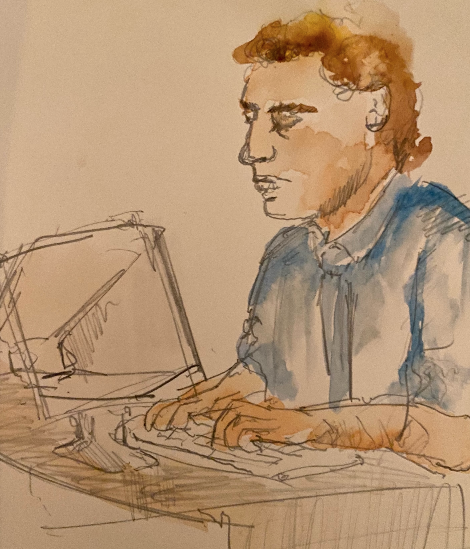- Polls apart - 4th March 2026
- Repeating on you… - 4th March 2026
- History man - 3rd March 2026

During 23 years with the BBC, and a 41 year journalistic career (when he was trained to use clear and simple language, avoiding jargon), our Editor, Welshman Phil Parry, has seen incredible technological change affecting his reporting, now comes new research emphasising the importance of an OLD one – the letter.
To a younger audience the way you used to work might sound unbelievable.

If a reporter was out in the field he or she would look for a house that had a phone line, knock on the owner’s door, and ask to use the phone (transferring the charge) to ‘file’ copy.
Now, of course, everyone has mobile phones and reporters can do it that way.
In newspapers or television, once a story was out it was out, and could only be changed in subsequent editions of the paper, or with ensuing broadcasts.

Today, though, my journalism is online with The Eye so changes can be made instantaneously.
When I started on newspapers and television it was all typewriters, with ‘blacks’ (terribly non-PC!), between pages giving you copies for different uses.
Gradually computers replaced them (I remember them starting to come in), but now all journalists use them.
Yet now we seem to be harking back to an earlier era, with books written about the importance of one old method of communication in particular – the letter.


In the late cold war letter-writing provided one of the few chinks in the iron curtain, offering solace to the families of dissidents, as well as to the victims of persecution themselves.
Amnesty International (AI) encouraged supporters to write letters to them (and to the governments concerned) showing that they cared about human rights.
 For example in 1971 Harold Edwards, a bookseller in Berkshire, began writing to the Aldov family in Moldavia while Slava Aldov was in Dubravlag jail, a Soviet camp for political prisoners.
For example in 1971 Harold Edwards, a bookseller in Berkshire, began writing to the Aldov family in Moldavia while Slava Aldov was in Dubravlag jail, a Soviet camp for political prisoners.
These letters were pretty mundane (about what was being read, or seen on the television), but the correspondence continued for 15 years, and showed to Mr Aldov that people outside the barbed wire in other countries were thinking of them.
Religious groups got in on the act too.
During the 1970s and 80s a number of Churches told their congregations to write letters to dissidents or their families, as well as religious minorities in the Soviet Union and satellite countries.

Instructions were even given – people were told to keep these letters short with simple words. and to coincide them with holiday periods when censors might be busy.
There’s no need for these letters now of course, but the principle of writing them is still a good one.
I receive an enormous amount of abuse online, and been accused (incorrectly) of being a “bastard” (many times), an “anti-devolutionist wanker”, “pure scum”, a “liar” (also many times) a “little git”, as well as (correctly) a “nosey git”, “irritating”, or a “nuisance”. But these remarks come amid many others. Too many, in fact, to mention.

I rarely sue (although I do sometimes) unless the online message is particularly outrageous, and contains a libel (which most of them do).
Some can be rebutted in court using an “honest comment” defence (formerly known as “fair comment”), however most cannot, which means that any libel case is likely to be successful.
However I often think people don’t realise what they are saying online (and don’t consider the legal rules!), whereas if they had to stop and consider issues while they found a pen and paper to write a letter, things might be different.
Perhaps not all advances in technology are good ones!

The memories of Phil’s astonishing, decades long award-winning career in journalism (when technology was basic in the early days, but abuse uncommon) as he was gripped by the rare neurological disabling condition Hereditary Spastic Paraplegia (HSP), have been released in the book ‘A Good Story’. Order it now.
Tomorrow – how during that career for Phil, economic stories affecting Wales would often dominate, with huge debates about securing a certain level of EU funds, but today it has changed, with governments around the world seeing their moves in this area as a form of warfare.










